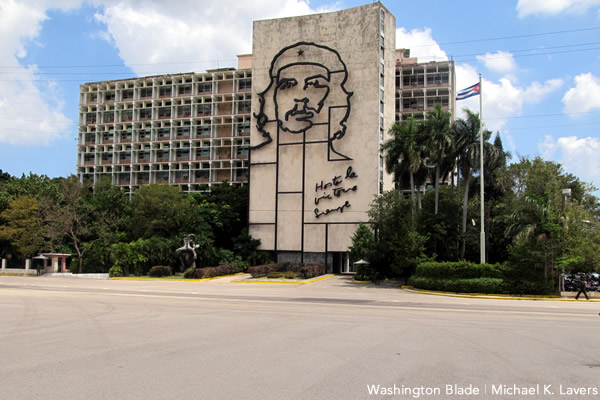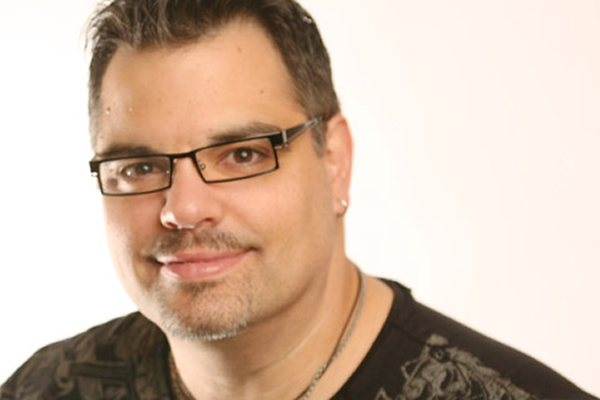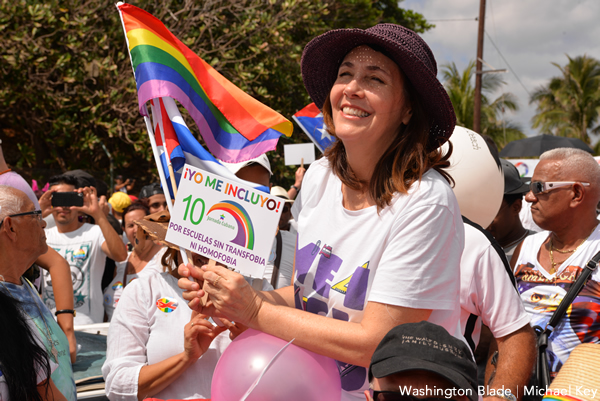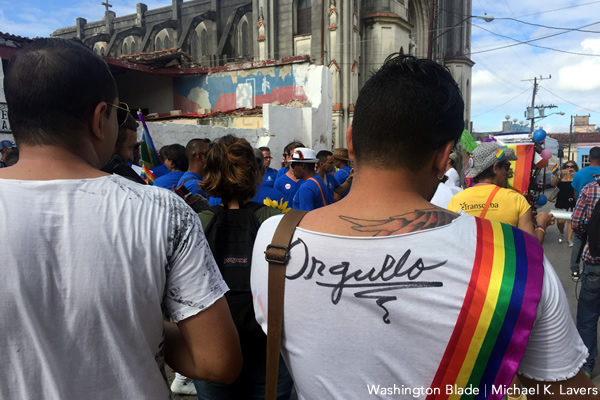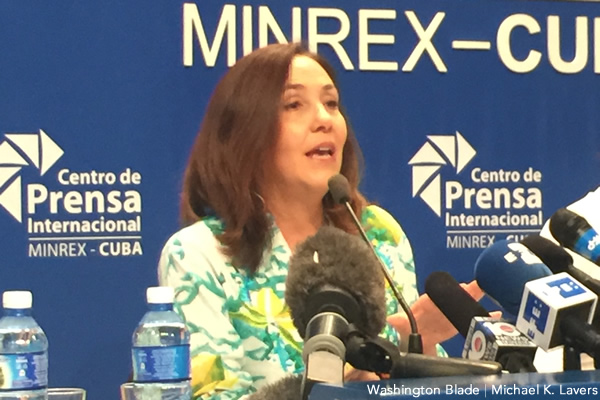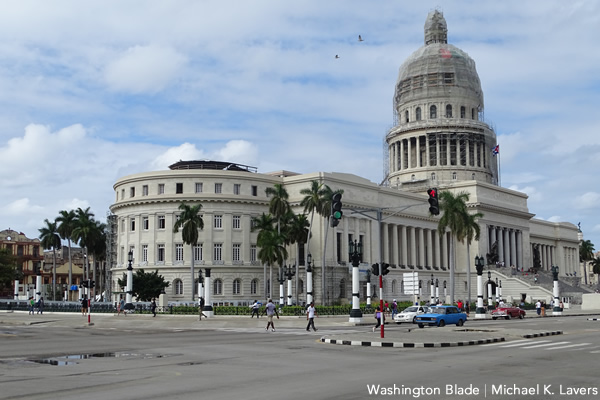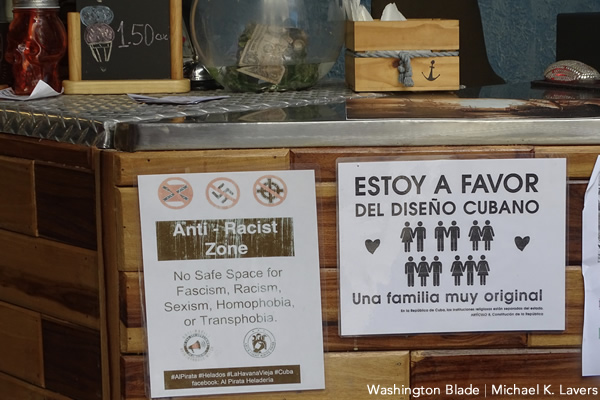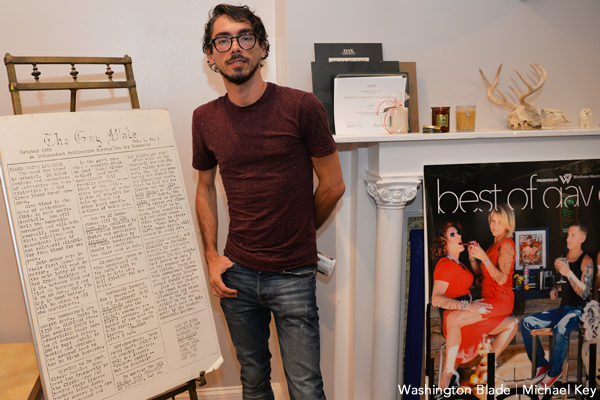
Miguel Díaz-Canel es el nuevo presidente de Cuba (Foto dominio público)
Tremenda Nota originalmente publicó esa nota en su sitio web.
El nuevo presidente de Cuba, Miguel Díaz-Canel Bermúdez, defendió la permanencia de El Mejunje, la meca del orgullo gay en la isla. Pero su historial gay-friendly contrasta con su apoyo a otras censuras, como a los medios independientes. ¿Qué tan tolerante es el sucesor de Raúl Castro?
El nuevo máximo responsable del Estado es recordado en Villa Clara, la provincia más central de Cuba, como una especie de mesías revolucionario: El hombre que solía saludar a cualquier persona en la calle, el que se mezclaba con la gente de a pie y le pedía su criterio para resolver los problemas de la comunidad.
A otros dirigentes de Villa Clara el pueblo les redujo sus nombres en un amago de acercamiento. A Humberto Rodríguez, otrora presidente de la Asamblea Provincial del Poder Popular, le llamaron Humbertico. Omar Martín y Julio Lima, primeros secretarios del Partido Comunista de Cuba (PCC) en Villa Clara en diferentes períodos, son Omarito y Julito. Pero Miguel Mario Díaz-Canel Bermúdez siempre ha sido Díaz-Canel. Cercanía con respeto.
A principios de la década de los noventa del pasado siglo, cuando fue designado primer secretario del PCC en la provincia, Díaz-Canel era un joven flacucho de melena rubicunda que iba a trabajar en bicicleta y usaba desgastados pulóveres a rayas. Se comenta que era un sex symbol santaclareño, dueño de una mirada “gatuna, marina y poderosa.”
A finales de los ochenta y principios de la siguiente década Díaz-Canel era, según el fundador de El Mejunje, Ramón Silverio, “un muchacho carismático, como una estrella de Hollywood, muy elegante; sabía vestirse y tenía mucha sensibilidad hacia la cultura.” Le tocó dirigir en una época dura: Había que sacar (recursos) de donde no había.
Silverio siente que le debe la continuidad de El Mejunje al nuevo presidente. Está agradecido. En Cuba la relación de la ciudadanía con la dirigencia política no es de representación: La gente se siente en deuda con la dirigencia cuando hace algo bien. La asimetría hace fluir todo el poder hacia arriba.
El mentor de El Mejunje está por cumplir setenta años. Es una persona de naturaleza parsimoniosa en contraste con su voz gravísima. Todo el tiempo mantiene los ojos entrecerrados y le distingue una pequeña giba en la espalda. No tiene hijos y, sin embargo, es el padre y abuelo de muchas generaciones, el “salvador de la gente marginada.”
Cuando algunas personas influyentes en la provincia y otras personas conservadoras con influencia en la política trataron de desacreditar El Mejunje y las actividades “sospechosas” — como llamaban los encuentros LGBTI+ que allí se realizaban — Díaz-Canel comprendió el valor de aquel sitio donde despuntaba una diversidad de orientaciones sexuales, personas y criterios. El propio Ramón Silverio afirma que, en aquella época se preocupó por que la gente comprendiera el sentido de El Mejunje.
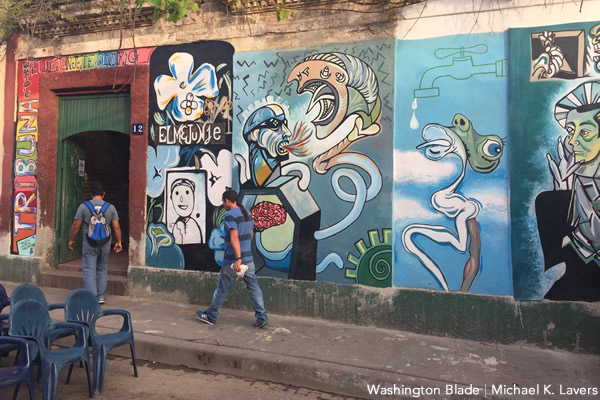
El Mejunje es un centro cultural y discoteca “gay-friendly” en Santa Clara, Cuba. El presidente cubano Miguel Díaz-Canel apoyó El Mejunje cuando era el primer secretario del Partido Comunista en Villa Clara. (Foto del Washington Blade por Michael K. Lavers)
Codo a codo
Nelys Valdés fue parte del equipo escogido por Díaz-Canel a principios de los noventa para potenciar, con los pocos recursos disponibles, el sector de la cultura en Villa Clara. Gracias a él entró por primera vez a El Mejunje: Díaz-Canel la convenció de que “nada negativo podía ocurrir en un lugar tan frecuentado por artistas, escritores y escritoras.”
“Esa noche no se me olvida,” asegura Nelys. “Él tenía una visión objetiva sobre las jerarquías artísticas. Siempre supo que había que arriesgarse.”
La antigua directora provincial de Cultura ya está retirada de la vida nocturna de Santa Clara; es una señora mayor. Pero en aquel entonces se encontraba en la flor de su juventud y trabajó “codo a codo” con Díaz-Canel para defender os eventos artísticos que se generaron alrededor de El Mejunje.
Ahora casi que es más fácil ser mejunjero o mejunjera, pero en aquella época no, porque existían muchos prejuicios con el tema de la homosexualidad y de la diversidad en sentido general, coinciden Nelys y Silverio. “Mientras él estaba,” recuerdan ambos, “no había miedo. Ni podía llegar a sus oídos que hubiera alguna campaña contra algún asunto relacionado con El Mejunje, ya sea un concurso de Miss Travesti o una noche de Halloween. Nunca existió una amenaza contra el centro cultura.” Para su fundador “El Mejunje es lo más parecido al país que quisiéramos tener.”
Aunque el presidente cubano no se ha manifestado nunca públicamente acerca de la aprobación definitiva del matrimonio igualitario en Cuba, sí ha participado en las galas contra la Homofobia y la Transfobia en el Teatro Karl Marx. Hasta hoy ha sido “el dirigente estatal y político de mayor rango que haya respaldado las Jornadas Cubanas” contra la Homofobia y la Transfobia, según afirma el periodista y activista LGBTI+ cubano Francisco Rodríguez Cruz, en un artículo publicado en su blog Paquito el de Cuba.
El famoso bloguero cubano destaca que el acontecimiento más trascendental que demostró la comprensión del nuevo presidente cubano sobre los temas de la diversidad y los derechos sexuales ocurrió durante el debate del Código de Trabajo en diciembre del 2013. Esa vez Díaz-Canel sugirió encargar a una comisión parlamentaria la redacción definitiva de la Ley que considerara todas las posturas, para propiciar un consenso ante los argumentos técnicos en contra, presuntamente prejuiciosos, de algunos parlamentarios. Todo terminó quedando en la nada.
El periodista argentino Martín Caparrós recientemente reveló detalles de su encuentro con el nuevo presidente hace más de veinte años. El argentino le preguntó al dirigente cubano si era cierto que se había declarado “el secretario de todos, de los obreros, los estudiantes, los campesinos, los homosexuales.” Díaz-Canel respondió: “No lo dije, no, pero yo siempre he dicho que tenemos que dar un espacio para todos, trabajar para todos.”
También Mariela Castro, hija de Raúl Castro y directora del CENESEX, dijo que Díaz-Canel, desde que era funcionario de la Unión de Jóvenes Comunistas, tenía la responsabilidad de atender el CENESEX, de manera que recibió formación en el tema. Cuando llegó a Primer Secretario del PCC en Villa Clara, era un dirigente formado en el tema.
Sin embargo, hay quienes no mantienen la esperanza de un cambio constitucional que reconozca todos los derechos relacionados con la identidad de género y la orientación sexual. Díaz-Canel también tiene una postura dura. Nadie podría asegurar que apoyará a todas las partes.
Meses antes de su “elección” el presidente cubano apareció en un video filtrado donde abogaba por cerrar medios de prensa independientes, algunos de ellos voceros de la comunidad LGBTI+ cubana.
En varios de los medios digitales alternativos aparecidos en Cuba en la última década han salido a la luz pública por primera vez historias de vida de muchos transexuales, gais y lesbianas de la Isla que no encontraban sitio en los periódicos oficiales. Un artículo publicado en el diario digital argentino Infobae agrega que esa imagen ortodoxa de Díaz-Canel contrasta con la percepción de hombre sencillo, tolerante, afable pero exigente que tienen muchos de sus conciudadanos de la provincia de Villa Clara.
A menos de un mes de su toma de posesión como presidente de los Consejos de Estado y de Ministros de Cuba solo se puede asegurar que Díaz-Canel, si bien alentó a El Mejunje y ha apoyado discretamente a la comunidad LGBTI+ cubana, también ha reprimido o tolerado la represión de periodistas independientes, activistas políticos y artistas disidentes. Ninguno de esos colectivos ha contado con el mismo “aliento” del presidente que las personas LGBTI+. Todo lo contrario.
Más allá de estas conjeturas, líderes de opinión como Ramón Silverio, cruzan los dedos y confían: “para nada Díaz-Canel es un hombre homofóbico; de serlo, hubiera sido un detractor y no un defensor de El Mejunje.” Silverio recuerda que el actual presidente asistía a menudo con su hija y su hijo a las actividades infantiles y, en aquella época, ni siquiera era Primer Secretario del PCC. Los padres y las madres que llevaron a los niños y niñas en ese tiempo a El Mejunje ya eran personas adelantadas de por sí. Les recomendaba a muchos artistas, a mucha gente importante como Ricardo Alarcón de Quesada — otrora presidente de la Asamblea Nacional del Poder Popular —, que visitaran El Mejunje. En el centro cultural todavía creen que Díaz-Canel habla del sitio, que lo reconoce como una obra importante de la cultura cubana y lo toma como ejemplo.
María Caridad Jorge es la portera de El Mejunje desde que, en los años noventa, el centro cultural más inclusivo de Cuba se mudó a su actual sede. Ella es lesbiana y activista por los derechos de la comunidad LGBTI+ en Santa Clara. Sin mucho esfuerzo recuerda las visitas de Díaz-Canel a El Mejunje. “Nos apoyó en todos los sentidos,” afirma. Para María Caridad, Díaz-Canel tuvo una visión larga del trabajo que se estaba realizando y fue un tipo que entendió que los grupos LGBTI+ tienen derecho también a participar en la cultura. Para la portera, Díaz-Canel era una persona normal, común y corriente. Y eso importante, razona, porque “no tiene razón dirigir un país y que la gente no te conozca.”
Miguel Díaz-Canel no formó parte de la generación revolucionaria que consideraba la homosexualidad como una desviación y que además penalizó y recluyó a esas personas consideradas “desviadas.” Lo que haga en su nueva y máxima responsabilidad en el Estado — ¿Promoverá el matrimonio igualitario? — determinará si la experiencia de El Mejunje fue un antecedente o una anécdota. Si llega a promover los derechos de la comunidad LGBTI+ pero cercena los de periodistas, grupos opositores y artistas disidentes, su tolerancia será una frustada sinécdoque: Una parte no alcanzará para alzarse sobre el todo.
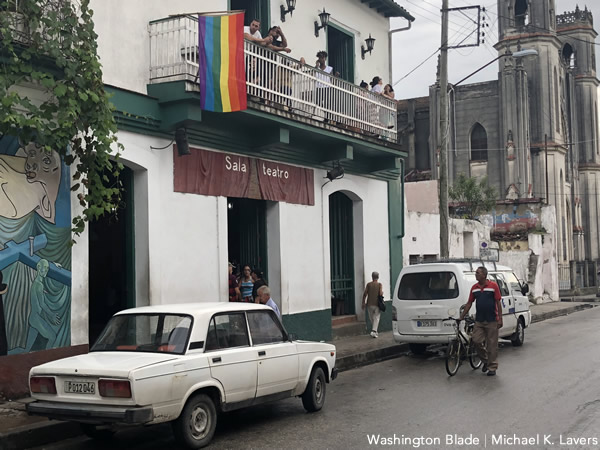
Una bandera del Orgullo LGBT cuelga de un balcón a El Mejunje, un centro cultural “gay-friendly” en Santa Clara, Cuba, el 15 de mayo de 2018. El nuevo presidente cubano Miguel Díaz-Canel apoyó El Mejunje cuando era el primer secretario del Partido Comunista en Villa Clara. (Foto del Washington Blade por Michael K. Lavers)
The post El presidente ‘gay-friendly’ appeared first on Washington Blade: Gay News, Politics, LGBT Rights.


